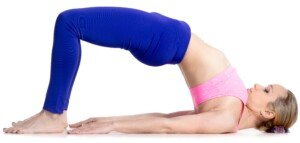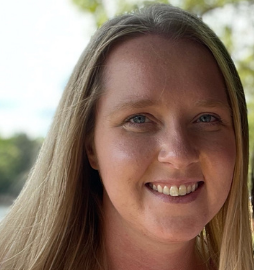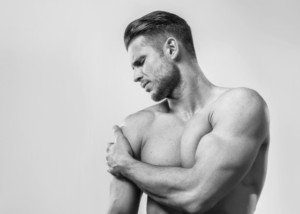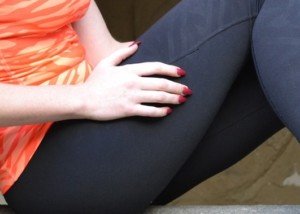
As you rise into a bridge, your neck cracks or self-adjusts; it feels good; it’s not painful.
How does this happen from rising into a bridge?
Isn’t that the strangest thing? As you rise your hips upward to form a bridge, you hear and feel some “cracking” going on in the back of your neck.
It may even feel really good, almost like a mini-adjustment.
It ends once you’re up in the bridge. You then lower, during which there’s no cracking.
But then when you rise up again, there it is: a mild and pleasant crunching or grating.
“In the therapy world, we refer to the self-adjustments or cracks as cavitations,” says Dr. Megan McLain, PT, DPT, cofounder of Intuitive Choice Physical Therapy & Wellness in Atlanta, GA.
“These can occur for a variety of reasons, but most typically, in the neck, it is a result of a release of built-up tension in the spine.
“There are so many muscles that attach between the neck and shoulders, and these muscles tend to develop extra tension because of the way we live our lives.
“Most of our day-to-day tasks are in front of us, and many of us spend a lot of time on the computer with our heads in forward positions and our arms in front.
“The tension builds up in a sitting position, and then when we lie back to perform a bridge and rise up, pressure can go through our C6 or C7 vertebrae, causing a cavitation as the force pushes forward through our neck.
“This isn’t dangerous and shouldn’t be a cause for concern unless it is painful.
“If that is the case, then I would get it checked out by a movement specialist like a physical therapist or chiropractor.”

 Dr. Megan McLain, PT, DPT,
Dr. Megan McLain, PT, DPT,
























